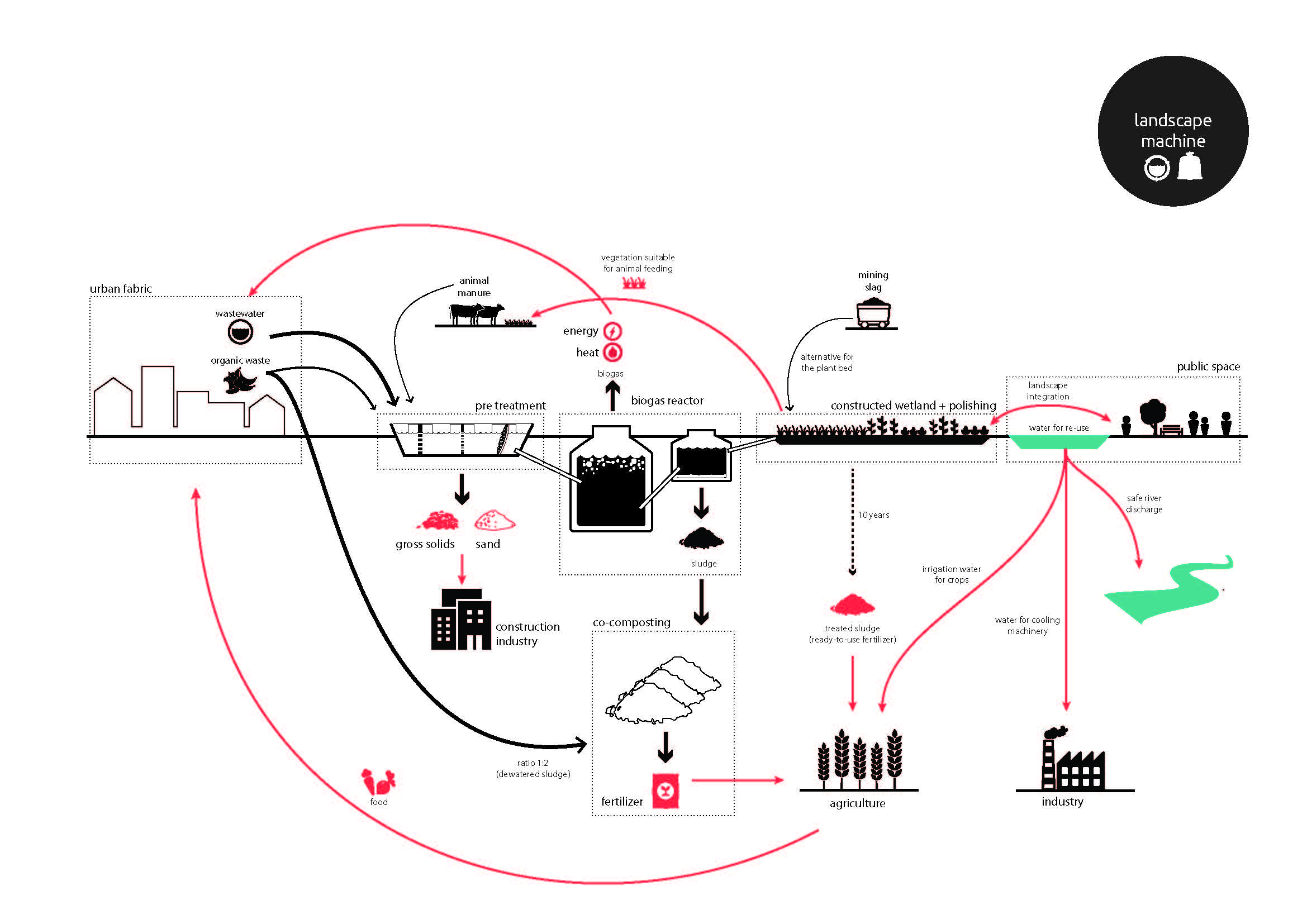a regional strategy for Belo Horizonte Metropolitan Region (RMBH) wastewater and solid waste
Student: Carolina Eboli
First mentor: Ulf Hackauf
Second mentor: Lidewij Tummers
Program: MSc Urbanism
Graduation date: 07/2017
Abstract
This thesis seeks to explore relations between Urban Metabolism’s framework and regional planning in Belo Horizonte Metropolitan Area (RMBH) – Brazil, and possible solutions to promote sustainable development through a better management of resources. In order to do so, the problem field defined in this research focuses on the area’s rapid urbanization heritage and its main environmental pressures. The research also restrains itself to wastewater and solid waste flows, pointing out their urgencies and opportunities through the combination of territorial, policy and metabolic analysis, providing a new perspective on the urban comprehension of the region. In combination, this thesis puts forward a catalog of solutions and a regional strategy. The proposal embraces the regional scale, the flows perspective and specific challenges due to rapid urbanization processes, translated into 4 different systems applied in regional clusters. It also explores the spatial implications of the proposed strategy, together with local governance and stakeholders with two test cases: Belo Horizonte and Ribeirão das Neves. Moreover, by understanding the metropolitan region as part of the same tissue rather than seeing it as a poor version of the capital, this thesis contributes towards, not only diminishing the existing inequality, but also strengthening the region as a whole. Lastly, this thesis reflects upon the translation between theory and design, within the concept of Urban Metabolism, contributing to the academic field.
Subject
urban metabolism
Regional planning
wastewater
solid waste




